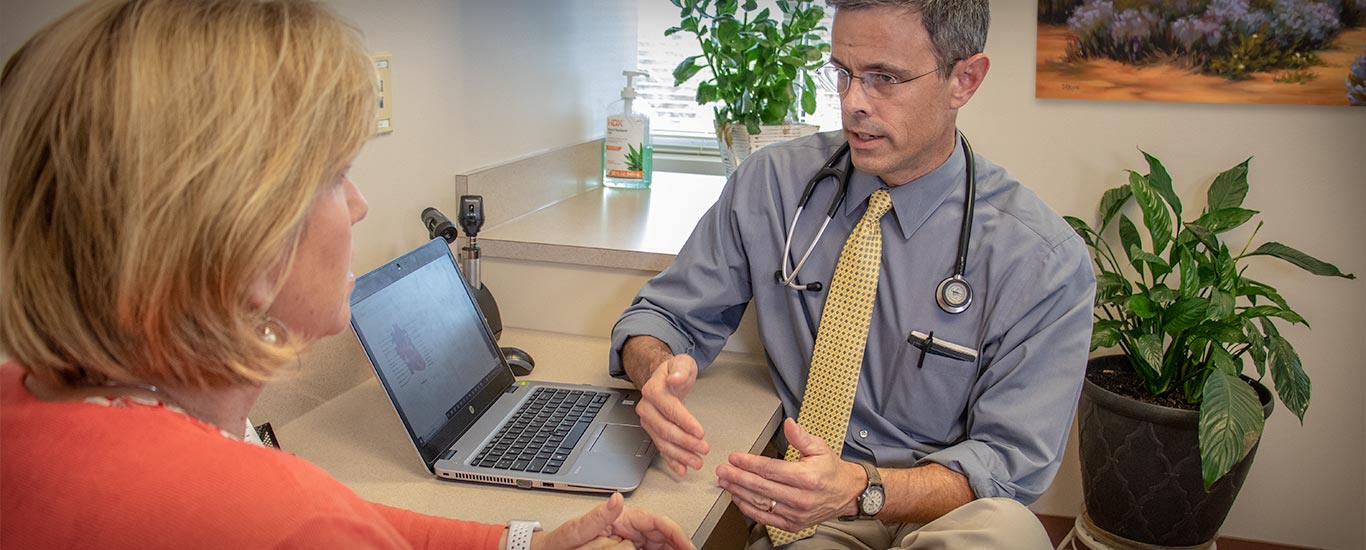
Anxiety
If you are walking through a dark parking garage alone it can trigger the “fight or flight” response which can heighten your awareness of your surroundings and produce feelings of anxiousness. We all get anxious; whether it’s applying for a new job, taking a test, or going on a first date, anxiety is a normal and helpful emotion. But sometimes anxiety can manifest as an excessive fear of everyday activities and cause a person to avoid certain situations.
This fear can produce recurring, intrusive thoughts and concerns as well as physical symptoms that can impact your quality of life. If you are experiencing any of these symptoms, you should consider seeing a primary care doctor that offers concierge medicine in Raleigh, North Carolina to get help.
Understanding Anxiety Disorders
Anxiety disorders are the most common and pervasive mood disorders in the United States.
There are many types of anxiety disorders and all of them can be serious medical conditions.
Generalized Anxiety Disorder (GAD)
Characterized by persistent and excessive worry about any number of things, GAD causes sufferers to be “worst case scenario” in their thinking and can be overly concerned with money, health, family or work. The benchmark for diagnosing GAD is that the person has difficulty controlling their worry on more days than not for 6 months and has at least three symptoms described below in Signs of Anxiety.
Panic Disorder and Panic Attacks
Panic disorder is characterized by spontaneous, out-of-the-blue panic attacks and then by being preoccupied with having a panic attack. The general indicators of a panic attack are the sudden onset of intense fear, pounding heart, sweating, trembling or shaking, chest pain or discomfort, shortness of breath, choking feeling, feeling dizzy or faint, nausea, heat or chill sensations and numbing or tingling sensations.
Social Anxiety Disorder
Characterized by an intense fear or anxiety of being judged, negatively evaluated, or rejected in a social or performance situation. People suffering from social anxiety disorder often know that the level of anxiety they are experiencing is unreasonable and excessive but are unable to control their anxiety.
Agoraphobia
A person who experiences agoraphobia has a fear of and avoids any place or situation – actual or anticipated – where help may not be available or where it is hard to escape. This can include crowded areas, bridges, elevators or public transport. A person experiencing agoraphobia finds it difficult to leave the home because of their fear.
Specific Phobias
Phobia is characterized by strong, irrational fear in the presence of or in anticipation of specific objects or circumstances. Common phobias focus on heights, thunder, snakes, spiders, flying, and being in elevators.
Post Traumatic Stress Disorder (PTSD)
PTSD can occur when a person lives through or sees a dangerous event. Most people know of this disorder because of the focus on veterans, but many other people can suffer PTSD as well. Trauma survivors, someone who has lived through a natural disaster, or even people experiencing the sudden, unexpected death of a loved one can develop PTSD.
Obsessive-Compulsive Disorder (OCD)
OCD involves both obsessive thoughts and compulsive behaviors that interfere with daily life. Obsessions can include repeated thoughts about contamination, needing things in a particular order, or worrying if doors are locked. Compulsions are the sufferer’s way to suppress such obsessions such as repeated hand washing or repeatedly checking locks.
Signs of Anxiety
- Gastrointestinal problems such as diarrhea, upset stomach, or gas
- Trouble sleeping
- Difficulty concentrating
- Weak or tired feeling
- Sweating, trembling or heavy breathing (hyperventilation)
- Increased heart rate
- Sense of impending danger, panic or doom
- Feeling nervous, irritable, or on edge
Diagnosis
Diagnosing anxiety disorders can be difficult because they often occur in concert with other disorders (comorbidities) such as depression or substance abuse. To be diagnosed with an anxiety disorder, you must exhibit a certain number of symptoms for a certain amount of time. Additionally, symptoms can vary from person to person and even change throughout a person’s life.
Your primary care doctor in Raleigh will first perform a physical examination to ensure your anxiety isn’t linked to a medication or underlying medical condition. You’ll also be asked detailed questions about your medical history and symptoms and likely participate in psychological questionnaires.
Clinical Treatments
Facing anxiety using concierge medicine in Raleigh gives you direct access to your primary care doctor who can help you face your anxiety head-on. There are two main types of clinical treatments:
Counseling or Psychotherapy involves working with a trained therapist to learn how to control your anxiety symptoms. This is generally short-term and the therapist will teach you skills to manage your worry and help you learn to participate in activities you may have been avoiding.
Medication can involve several different types of drugs:
Antidepressants including selective serotonin reuptake inhibitors (SSRIs) and serotonin and norepinephrine reuptake inhibitors (SNRIs). Although designated antidepressants, these medications help to reduce the tendency to worry excessively. Common prescription medications include: Lexapro (escitalopram), Cymbalta (duloxetine), Prozac (fluoxetine), Effexor XR (venlafaxine) or Paxil (paroxetine).
Benzodiazepines are sedatives that relieve anxiety. Benzodiazepines are generally used to relieve acute anxiety in short-term situations such as flying. However, caution must be used with this class of drugs because they can be habit-forming. Additionally, because they are sedating, there is a risk of overdose, reduction of cognition, slowed physical reactions. In combination with other sedatives, such as alcohol or sleep aids, benzodiazepines can cause dangerous sedation.
Let’s Face Your Anxiety Together
If you or someone you love is experiencing any form of extreme anxiety our primary care physician, Dr. Patrick O’Connell is ready to help. Through continuity of care and referrals, we are committed to keeping watch over your health both mentally and physically. Schedule a visit today to discuss how we can face your anxiety together.


